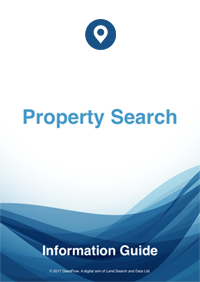Redemption of a Mortgage
Contents
Overview
When you make the last payment on your mortgage you should check your Title Register or Deeds to ensure that the mortgage has been removed from the official records of ownership. You should also check that the ownership details shown at the Land Registry are precise, including all of your name and including the spelling thereof. This article describes the correct process to follow.
Unregistered Properties
Your mortgagee will forward the Title Deeds to you, that is, the large bundle of Deeds and Documents that together provide evidence of the chain of ownership for at least 15 years prior to your ownership. If you do not receive them after a week or two you should contact the mortgagee to check they have been sent. When you receive them you should check that there is evidence of the mortgage redemption within the bundle you receive. If there is not then you should instruct your solicitor to obtain confirmation of redemption from them.
Regiser your Deeds
It is easy to mis-place this large bundle, and accordingly a prudent step to take next would be to instruct your solicitor to apply for voluntary registration. This means that the Deeds will be replaced with a digital copy of a Title Register and Title Plan which are held by the Land Registry. These documents replace the Deeds and become your new ownership documents. Official copies can always be obtained online within a day or so.
Registered Properties
If your property is registered there will be no documents for your mortgagee to send you. Instead, you will receive a letter to tell you that the mortgage has been repaid and that you should obtain a copy of the ownership documents from the Land Registry. These are available for a small fee and can usually be obtained within an hour or so of placing an order.
Title Register and Title Plan
Registered Properties consist of a Title Register and Title Plan, which together provide all the essential information to describe your property and the terms upon which you own it. If the property is leasehold you should also obtain a copy of the Lease, which provides further details of your ownership.
Old Associated Documents
It would be prudent to obtain copies of any of the old Associated Documents which have also been registered. There are usually one or two of them and they often provide a wealth of detail which will prove useful in the event of future issues relating to your property boundaries, rights of way or other rights that may appertain.
When applying for a Title Register there is an option for you to add the Title Plan and old Associated Documents to your purchase. As these are held digitally you can store them on your computer, send copies to others, e.g. your children, or print them any time you wish.
Check your Registered Documents
The Mortgage
Section C of your Title Register, which is where mortgages are referred to, should no longer show details of your mortgage. Removal of the mortgage is usually dealt with directly by your mortgagee with a few days of their receiving the final payment. If the mortgage still shows on the Title Register you should contact your mortgagee straight away and ask them to deal with it immediately.
Your Names
Your surname and all of your Christian names should be shown in the Title Register and the spellings should be correct. If they are not, as this document is checked by most official departments, you should apply straight away to correct them. This is a simple procedure but failure to correct them could cause problems with the re-issue of your passport, driving licence or with receipt of documents or money from official organisations.
Correcting Errors in Your Name/s
Application to correct your names is made by completing forms ID1 and AP1 and sending them to the Land Registry.
Title Register
The Land Registry Title Register holds data relating to the property ownership, purchase price, mortgage, tenure, covenants, rights of way, leases and class of title.
£19.95Title Plan
The Title Plan shows an outline of the property and its immediate neighbourhood, and uses colours to identify rights of way, general boundaries and land affected by covenants.
£19.95Associated Documents
Deeds creating Restrictions, Covenants, Easements, etc. are often kept digitally by the Land Registry and made available for sale due to their invaluable detail and content to assist in further understanding the Restrictions, etc.
£29.95


